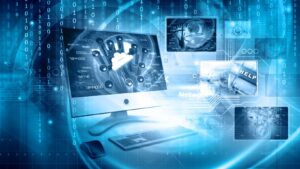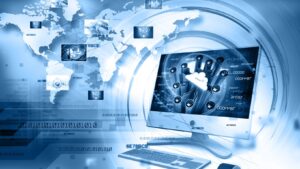In the rapidly evolving world of computer science, new technologies are constantly emerging, reshaping our understanding and use of digital platforms. From artificial intelligence to quantum computing, these advancements are revolutionizing not only how we interact with machines, but also how they interact with us.
So, if you’re eager to stay ahead of the curve in this fast-paced field, you’re in the right place. Let’s explore the future, today.
Emerging Technologies In Computer Science
Emerging technologies, in the sphere of computer science, denote recent advancements and innovation that are poised to make a significant impact. With roots in fields such as Artificial Intelligence (AI), Quantum Computing, and Cybersecurity, they are technologies that are currently developing but have the potential to dramatically alter business, economic, social landscapes in the near future.

The role of these emerging technologies in computer science can’t be understated. They serve to push the frontiers of what is digitally possible, enabling new ways of processing information, solving problems, and communicating. The influence of these technologies extend to various sectors, such as healthcare, where they can improve diagnosis and treatment, to businesses where they can optimize operations and boost efficiencies.
Artificial Intelligence and Machine Learning
Building on the concept of emerging technologies in computer science, this section narrows down to artificial intelligence (AI) and machine learning. These are two pivotal areas significantly altering the digital landscape.
Basics of Artificial Intelligence and Machine Learning
AI, a concept coined in 1956, implies the ability of computers to mimic human intelligence, albeit in a more advanced and error-free manner. It’s divided into two broad types: narrow AI, which abounds in modern applications, and general AI that matches, even surpasses, human capabilities.

Machine learning, a subset of AI, relies on complex algorithms to make computers learn from data, allowing them to improve over time without direct human intervention. Examples include video recommendation algorithms on YouTube or spam filters on email servers. Two primary machine learning types are supervised learning, where machines learn from labeled data, and unsupervised learning, where they find patterns in data independently.
Applications and Future of AI and Machine Learning
AI and machine learning offer diverse applications across several sectors. In healthcare, they streamline diagnosis, predict patient outcomes, and tailor treatments. In business, they enable advanced analytics, improve customer experience, and automate operations.
Their future looks promising. Predictions hint at AI and machine learning becoming ubiquitous across sectors, augmenting human tasks rather than replacing them. They’ll foster new business models, enhance efficiency, and fuel a more advanced, intelligent world.
Internet of Things in Computer Science
Moving beyond artificial intelligence and machine learning, another influential player enters the arena of “emerging technologies in computer science.” That player is the Internet of Things (IoT).

The Internet of Things epitomizes the seamless integration of various physical objects or things with the Internet, allowing for communication and data exchange between them. These objects, embedded with sensors, software, and other technologies, gather and share data with other devices and systems over the Internet. IoT extends to multiple devices such as home appliances, cars, wearable devices, and more, transforming everyday objects into smart, connected systems.
Impact and Applications of IoT
The Internet of Things contributes notably to computer science, redefining possibilities across different sectors. IoT impacts industries and services by introducing automation and smarter decision-making systems, bolstering efficiency and convenience.
For instance, in healthcare, IoT devices like wearable health monitors and wireless sensor networks allow for remote patient monitoring, reducing hospital visits and enabling real-time tracking of health information. In businesses, IoT enhances operational efficiency with smart devices optimizing inventory management, energy usage, and equipment maintenance.
With a seemingly endless list of applications, IoT’s impact on the field of computer science is highly significant. As this technology continues to evolve, it’ll build a future with more connected, intelligent systems, enhancing our digital world in ways we still have yet to see.


